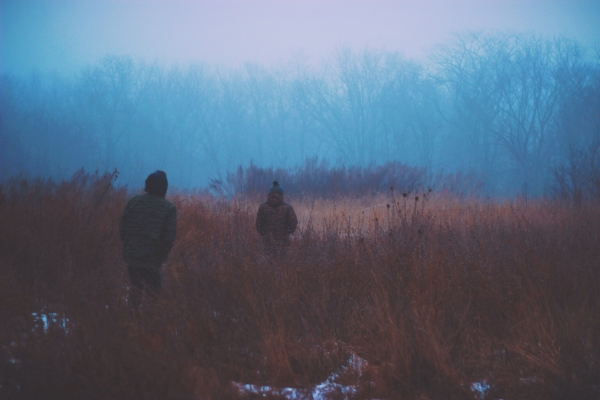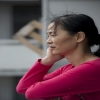The United Nations High Commissioner for Refugees (UNHCR) gathers statistics about the whereabouts of refugees around the world. From the statistics, one can see that more North Korean refugees are living in the UK than in the US or Canada. To date, the UK government has accepted the largest number of North Korean refugees excluding South Korea.
There are about 680 refugees currently living in the UK. If those who have not applied for asylum or acquired permanent residency or citizenship are included, it is estimated that more than a thousand North Korean defectors have made the UK their home.
The UK government has been providing financial and housing support to North Korean defectors since the first one arrived in the country in 2004; however, it would be an error to say that these benefits are limited to North Korean defectors since all refugees in the UK receive the same treatment. Nonetheless, this is one of the reasons North Korean refugees started to settle in the UK from 2004, and their numbers kept increasing every year. This upward trend diminished after 2008.
North Korean defectors who have settled in the UK as refugees must live in the country for five years before being able to apply for indefinite leave to remain. One year after being granted indefinite leave to remain, North Koreans are usually able to apply for citizenship. These are the words that the North Korean refugees hear from the UK government.
Although each and every person who initially leaves North Korea has a different background, they all face political prosecution should they be returned since freedom of movement is not allowed in North Korea.
As the first North Korean refugee settled in the UK in 2004, the earliest that refugee would have been able to acquire citizenship would have been 2010.
According to statistics from 2014, it is said that around 600 North Koreans gained refugee status, which supports the theory that UK is continuously willing to accept North Korean defectors. However, some North Koreans have been ordered to leave for South Korea, demonstrating the graveness of the situation facing North Koreans living in UK.
I entered the UK in 2008 and did not experience any obstacles when the Home Office conducted asylum screening. Scars and wounds from torture were clear on my body. Medical personnel diagnosed these as a sign of torture, and that I might continue to suffer from these in the future.
However, a number of asylum claims by North Korean defectors were rejected on the false grounds that they were considered Korean Chinese. Basically, misunderstandings arise because North Koreans have to communicate via a third person due to a language barrier. Because some have lived in China since either a young age or for a while, their languages and accents have changed.
On occasion, a North Korean person who holds South Korean citizenship enters the UK. However, they have to testify in court about their reasons for coming here from South Korea. There are some people who have managed to claim refugee status while being South Korean citizens.
Since 2008, the UK government decided to deport North Korean defectors who have resided in South Korea. One reason for this change is due to Korean Chinese who feigned being North Korean defectors to claim asylum. In fact, the first North Korean refugee who arrived in 2004 was actually a Korean Chinese. Due to the number of fake refugees since 2004, the real ones are being rejected by the UK government and end up living as international orphans.
After 2008, a large number of North Korean defectors claimed asylum in US, Canada, and Europe. Defects in the UK government’s immigration policies were exposed, and North Koreans fell victim to them.
The screening of asylum-seekers has toughened and evidence that one had lived in North Korea is required - something which North Korean residents, who risked their lives escaping the country, do not have.
For those who do not have a single family picture, the UK government offers a test that aims to prove one is from North Korea. However, because numerous people left North Korea during the Arduous March and the younger refugees have not received an education, many do not know about the state of North Korea. Even if they know something, their memories have been altered after a long period, and they fail the test due to wrong numbers.
Although I do not know the global criteria for refugee, I believe it is a misjudgment to test people based on the assumption that every person perfectly knows about their country’s national anthem or issues, and can answer without a minor error.
Then, why did the UK government close the doors on North Korean refugees?
The UK has faced many economic struggles since the author entered the country in 2008. So the topic of reducing the number of refugees has been frequently discussed. But the greatest trouble regarding North Korea refugees settling in UK is that they have more trouble learning English than other refugees, and, accordingly, that they cannot find jobs.
Many North Koreans live in towns where there is a Korean community and work part-time instead of in full-time jobs. In short, there are not many ways that North Korean refugees can contribute to the UK’s economy. The UK does not have enough full-time jobs for North Korean refugees as they lack language skills.
A second important reason is, in the perspective of international politics, the diplomatic relationship between the UK and North Korea. The UK views both South Korea and North Korea as legitimate countries, and holds diplomatic relations with North Korea. As a result, the UK can face discord and conflict concerning the issue of North Korean refugees.
I believe that there are problems between the governments of the UK and North Korea as events were held at the Parliament criticizing the human rights situation in North Korea. However, as some individuals do not operate for the cause of truth, some groups in the seemingly perfect UK government are opposed to ruffling relationships with North Korea.
Lastly, restrictions against North Korean refugees reflect the economic hardships of the UK regarding the labour market and international relations.
The current economy of UK does not demand cheap domestic labor. Clearly, this affected policies on North Korean refugees. Refugees who have not learned any type of skill in North Korea have a decreasing chance of living and working in a computerized 21st century, the era of robots.
It is a tragedy that North Korean refugees lack a ‘destination of choice’ as defined in the UN Refugee Convention.
For the UK government to integrate North Korean refugees in the labour market, it should first provide education programmes and assist them to adjust to the 21st century. This is not only the best way to help refugees, but also a good way to prevent issues that will arise from future North Korean refugees arriving here.
The UK government should allow more North Korean refugees to settle here. To do that, its policies on refugee admission must first be reformed.
Jihyun Park is EAHRNK’s North Korean Outreach and Project Coordinator. Born in Chongjin, North Korea, Jihyun has been living in the UK since 2008. This article was written by Jihyun for EAHRNK.

 Invisible Children: The Stateless Children of North Korean Refugees
Invisible Children: The Stateless Children of North Korean Refugees A Contact Group on North Korea - What Role for Europe?
A Contact Group on North Korea - What Role for Europe? Extract 4 from 'Stars Between the Sun and Moon' by Lucia Jang and Susan Elizabeth McClelland
Extract 4 from 'Stars Between the Sun and Moon' by Lucia Jang and Susan Elizabeth McClelland